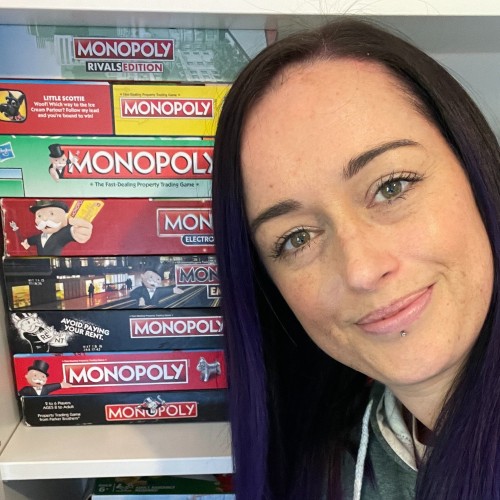One of the most misunderstood rules in Monopoly is around auctioning. But it’s also one of the most important!
If you don’t have auctions, then Monopoly games will drag out for hours and become almost impossible to win.
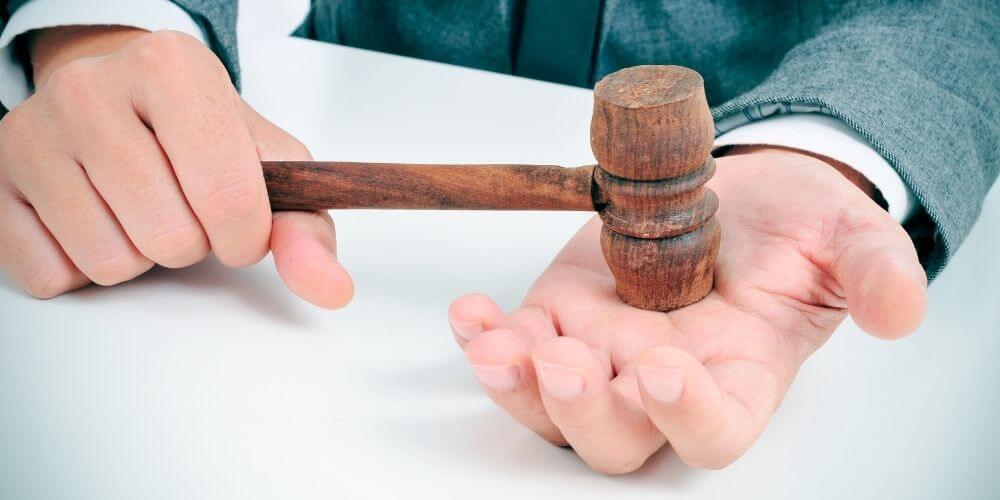
Understanding Monopoly auctions, including when they should take place and how they need to be held, helps to keep games running smoothly. Auctions can add a lot of fun to the game too!
So, here’s everything you need to know about auctions in a game of Monopoly…
When do auctions happen in Monopoly?
Monopoly auctions may happen in the following circumstances:
- If you land on an unowned property, and you decide you don’t want to buy it (or you don’t want to pay full price)
- If you land on an unowned property and can’t afford to pay the full price for it
- A player goes bankrupt to the Bank. When the money is owed to the Bank (and not to another player) all of their properties are auctioned in turn (providing two or more players are still in the game)
- If several players wish to buy houses or hotels but there are not enough left in the Bank, they will be auctioned
- If a player lands on the Auction space in Monopoly: The Mega Edition
- If you’re playing the house rule ‘Forced Auction’ then any time you land on an unowned property an auction begins immediately – you can’t buy one outright.
How does auctioning work in Monopoly?
In Monopoly, auctioning works by having players take turns to bid on an unowned property. Any property space – including utilities and railroads – can be auctioned.
When an auction is initiated, players bid on the property until everyone has decided they don’t want to bid anymore. When that happens, the player with the highest bid wins the property.
This means that, if you’re an aggressive bidder, you could pick up a lot of properties early in the game, but also burn through your cash stockpile quickly too. It’s important to balance buying up property with keeping enough money to pay any fines or buy houses and hotels later when you need to.
Another benefit of auctions is that you can be really strategic and drive up the price of a property someone needs to complete a set. If the final property in a set ends up in an auction, you could try to keep up with bids for the person who needs it and make them pay potentially hundreds of dollars more than it’s worth.
Of course, they might call your bluff and make you pay a high price – but then you might have stopped them from making a game-winning move still. There’s a lot of strategy involved!
How To Auction in Monopoly
There are no official rules on how to auction property in Monopoly. This isn’t covered at all in the Monopoly rule book!
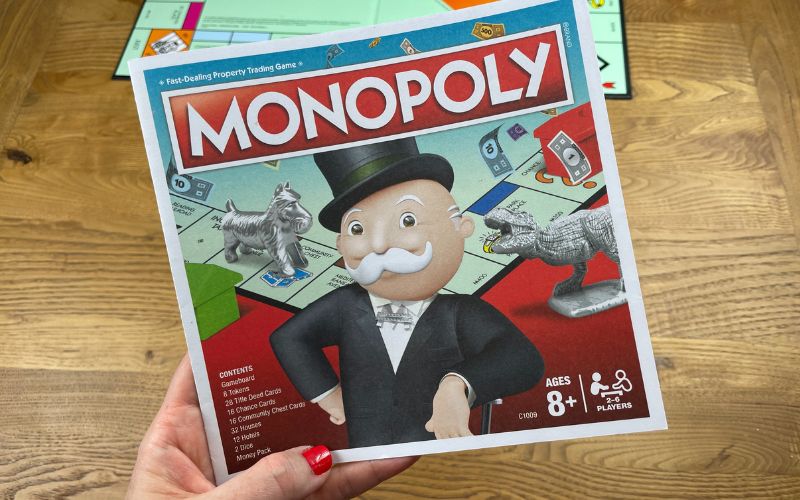
So with that in mind, let’s cover how an auction works in a normal game of Monopoly, and then let’s look at how that works on a video game version of the board game.
Board Game Version
In a standard Monopoly board game, there is no turn order during an auction. Anyone can bid for the property in any order, and they can bid any price higher than the previous bid.
That means that, unfortunately, there’s no rule in place to stop bids increasing by $1 until eventually everyone gives in, although feel free to invent your own rules on minimum bid increments.
Once no one wants to go higher than the last bid, the auction is over and the highest bidder wins.
Video Game Version
In the online and video game versions of Monopoly, the auction process is slightly different…
The price will start at $1 and then the player whose turn follows that of the person who started the auction will make their bid, either in increments of $1, $10, or $100.
Alternatively, they can choose to pass, at which point they withdraw from the auction. If the value of the property exceeds your current cash amount, you will only be able to withdraw.
Once only one player is left in the auction, they will win with their last bid.

Monopoly Auction Starting Price
There is no official starting price for auctions in Monopoly and so technically it is $1. Anyone can bid any amount to kick-start the real bidding.
If you have the cash, it’s always worth bidding at least the mortgage value of the property (half its value to buy). Otherwise, another player could win the property and just mortgage it immediately for a profit.
For example, let’s say that a railroad (worth $200) is put up for auction. If you were to buy this for $90, you could immediately mortgage it and receive $100, giving you a $10 profit.
For this reason, after the initial $1 bid, players often jump straight into bidding 50% of the original price on the Title Deed card.
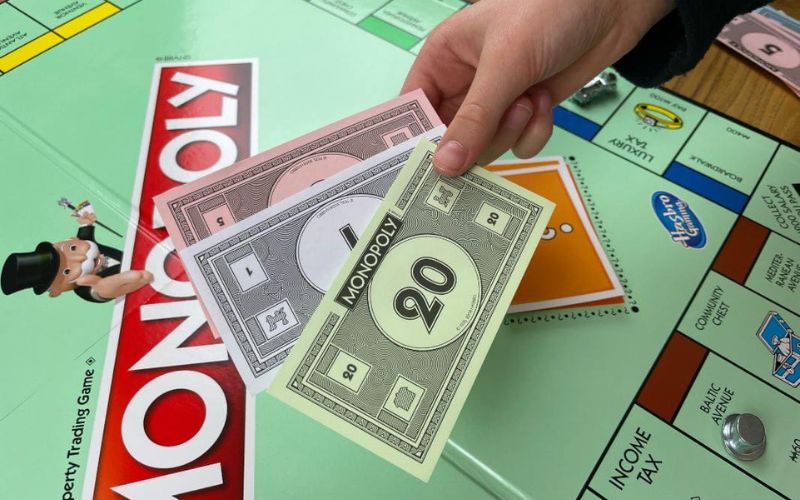
Mortgaging To Pay For An Auction
One common cause of arguments in the game of Monopoly is over what happens when someone bids more cash than they possess in an auction.
This isn’t written in the official Monopoly rules, and the answer depends on whether you are playing the board game or video game version.
Board Game Version
According to Kevin Tostado, director of the documentary, ‘Under the Boardwalk: The MONOPOLY Story‘, during the 2009 World Monopoly Championships, the following auction rule was in place…
“Once the auction concludes, the final bid is binding, which means that if the player does not have money to pay for the property, it is possible for them to have just gone bankrupt to the bank in the process of buying the property at auction. You cannot mortgage a property you just bought to pay for the said property, but you can mortgage another property that you already own, or make a trade”
Video Game Version
However, Monopoly video games do only allow players to bid any higher than the cash they already have. So in the Monopoly video game, you cannot mortgage property that you already own to pay for your auction win.
I suspect that the game developers were cutting corners by changing this rule slightly and hoping that nobody would notice.
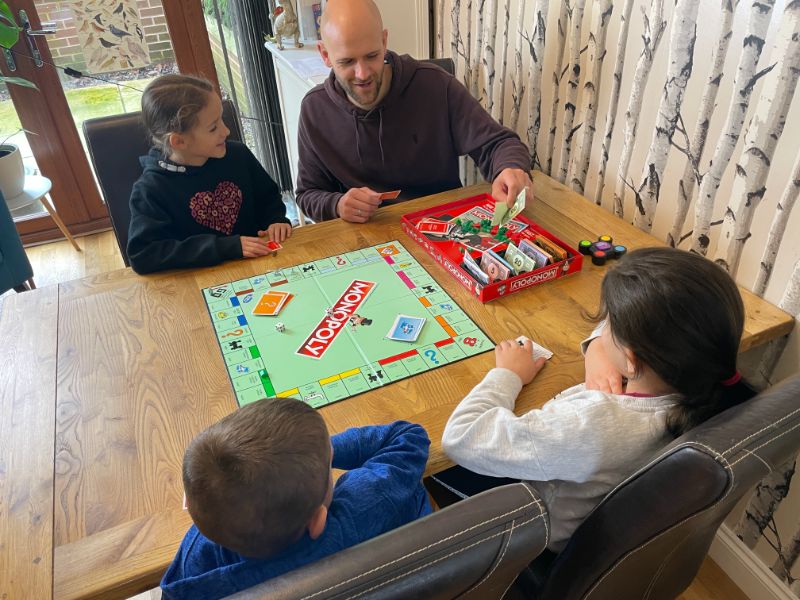
Monopoly Auction Rules With Two Players
The rules for Monopoly auctions with only two players are exactly the same for auctions with more players. With a two-player auction, you’ll just be passing the bids back and forth until one of you withdraws.
This creates a major tactical advantage if your opponent is low on cash. If they have less money than the cost of a property to buy it, and you land on it, you should definitely consider sending it to auction to get it cheaper.
If you just bid the amount of cash your opponent has. They can’t beat your bid, and so you’ll win the property at a reduced price. Be careful though, because they could mortgage some existing property to pay for it.
Of course, they might not realize that this is an option. I know it might seem sneaky, but auctioning properties to get them at a lower price is definitely within the rules.
The Auction Space in Monopoly Mega Edition
Monopoly Mega Edition has a 50% larger board and includes a new space called the auction space.
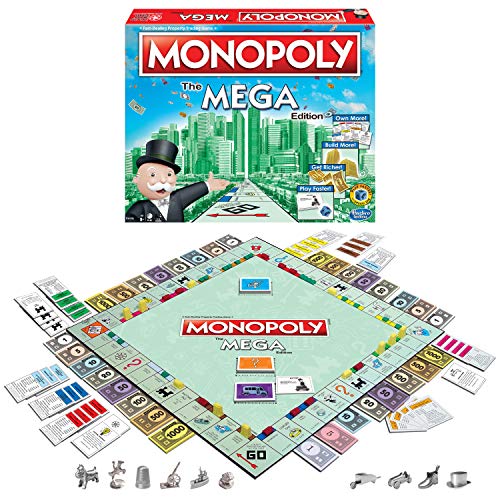
If you land on the Auction space in Monopoly Mega Edition, you can choose any unowned property on the board and send it straight to auction. It’s a potentially great way to complete a set.
There’s a catch though. If all properties are owned, you instead must move to the space on the board that would make you pay the highest rent when houses, hotels, and skyscrapers are accounted for – and then pay up that rent. Eek!
You definitely want to avoid this space if all properties are owned.
Monopoly Auction FAQs
If you land on a Monopoly property and can’t afford to buy it, you could raise funds by mortgaging other properties or selling assets. Another option would be to auction the property and hopefully get it for a reduced price.
If you win an auction in Monopoly that you can’t afford, you can try to raise the funds by mortgaging other properties, selling houses, or trading. If you still can’t pay then you are bankrupt and will lose.
In a regular game of Monopoly, anyone can start the bidding. The auction is technically held by whoever is the banker for the game. In the video game versions, the players whose turn it would be next, after the player who initiated the auction, starts the bidding.
Bidding in a Monopoly auction starts at $1. There is no official starting price set in the rules, and so you start from the lowest possible amount in the game. Anyone can then bid any amount higher than this.
If you’re in Monopoly jail you can still participate in auctions. Being in jail doesn’t stop you from bidding in auctions, collecting rent, mortgaging properties, or buying houses and hotels.
There’s no official rule on what happens if nobody bids in a Monopoly auction, because bids start at $1 and so usually someone is willing to bid that amount, even just to mortgage the property.
In the video game versions of Monopoly, if nobody bids then the property is returned to the bank, unsold.
You may decline to take part in a Monopoly auction. However, it’s always worth bidding at least $1. If everyone declines all auctions, the game will last for much longer than it should and will become boring.
When you auction a property in Monopoly the money is always paid to the bank. This is true whether the property has never been owned or was owned by a player who went bankrupt to the bank.
Final word
Auctioning in Monopoly is one of the most misunderstood rule sets (the other being the Free Parking rules).
Once you know how to auction properties correctly, and when, your games of Monopoly will be much faster.
And you can try to use auctioning to secure the properties you need at a bargain price – or drive up the cost of properties that your opponents need to get a color set.

